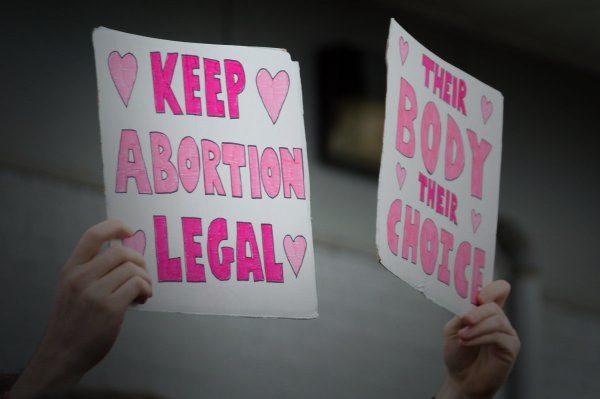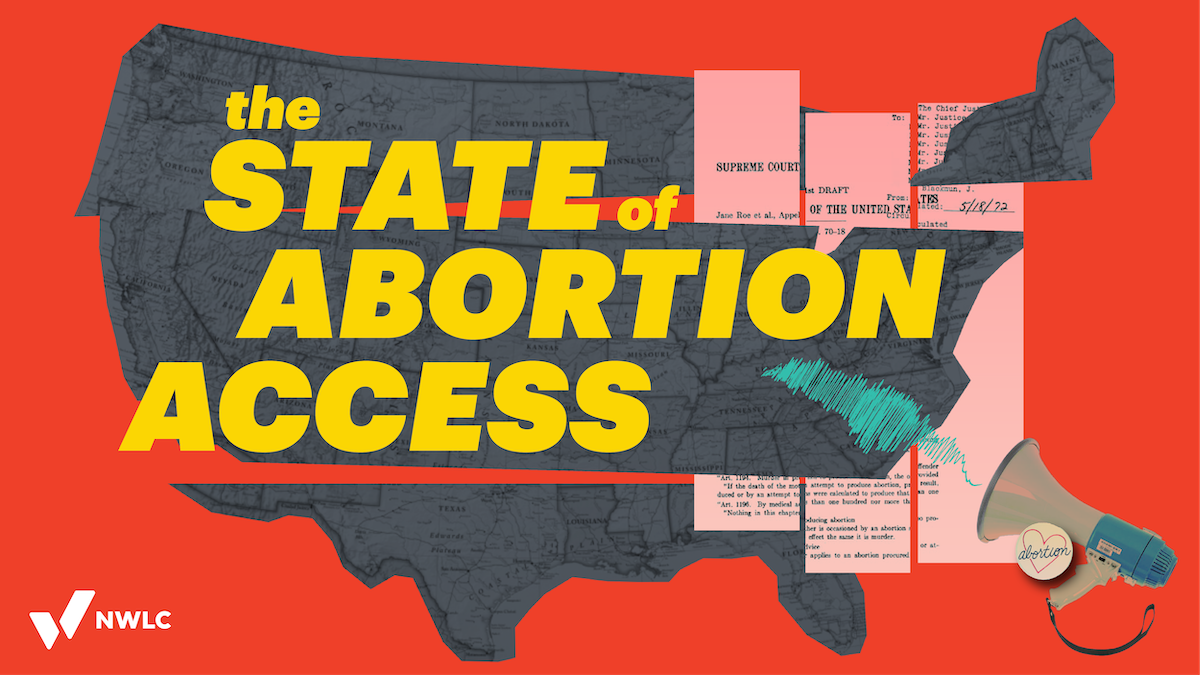Abortion rights, women of color, and LGBTQI+ people are under attack. Pledge to join us in fighting for gender justice.
So-Called Conscience Protection Act Puts “Religious Beliefs” Above Patient Care

 On Wednesday, House Representative Chris Smith held a press conference on the so-called “Conscience Protection Act” (CPA). The bill, introduced back in January, could allow any health care provider—including doctors, insurance companies, medical training programs or hospitals—to refuse to perform, pay for, participate in or assist in abortion services. This bill would put providers’ beliefs above patient care, ultimately threatening the lives and health of patients. It also ignores the real discrimination that occurs against doctors and nurses who want to provide patients with the abortion services they seek.
On Wednesday, House Representative Chris Smith held a press conference on the so-called “Conscience Protection Act” (CPA). The bill, introduced back in January, could allow any health care provider—including doctors, insurance companies, medical training programs or hospitals—to refuse to perform, pay for, participate in or assist in abortion services. This bill would put providers’ beliefs above patient care, ultimately threatening the lives and health of patients. It also ignores the real discrimination that occurs against doctors and nurses who want to provide patients with the abortion services they seek.
The CPA would embolden health care providers to put their own beliefs ahead of patient care
This bill would be disastrous for patient health by allowing health care providers to place their personal beliefs ahead of comprehensive patient care. We have seen the ways that patients are harmed by providers who refuse abortion services based on religious beliefs. See here, here and here. These outcomes are never okay. Health care providers should not be allowed to refuse to treat patients because of personal beliefs.
The CPA ignores the providers who face discrimination for providing abortion care
The bill ignores and exacerbates the discrimination that is actually occurring against health care professionals who want to provide care to patients seeking abortion. For example:
- Diane Horvath-Cosper was prohibited by her D.C. hospital employer from speaking to the media and publishing articles about the importance of abortion access, simply because the topic of her advocacy was abortion.
- During a job interview, a senior partner of a private ob/gyn practice said to the interviewee, “If I ever find out you did elective abortion any time in your professional life, you’ll never practice medicine in [this state] again. Do you understand that?”
- A doctor worked for many years at a private family practice and provided abortions at a nearby clinic. But when a Catholic hospital system bought the practice she was told that she would have to stop providing abortions at the local clinic or else lose her job. “I quit rather than give up helping patients get the abortions they need, but other providers might not be able to make the same choice.”
Furthermore, the bill misuses research findings to justify allowing providers to deny patient care. The bill inaccurately cites a 2011 study in an attempt to justify claims that most ob-gyns do not want to provide abortion care. This is a glaring misinterpretation of research results. As we explained when Congress misused the same study in a draft funding bill, there are myriad reasons that ob-gyns might not provide abortion care, including fear of reprisal and violence by extreme activists opposed to abortion, employment discrimination, not being trained to provide them, or working at a religiously affiliated medical center that does not allow provision of abortion care.
Voters Oppose Laws that Allow for Exemptions Based on Religious or Moral Beliefs
A recent nationally representative survey indicates that U.S. voters oppose religious exemption laws that allow health care providers—insurers, hospitals, and practitioners—to refuse access to abortion, birth control, and care for a miscarriage based on religious objections. Furthermore, voters strongly support proactive policies that protect patient care. For example, the survey found that:
- 66% percent of voters support policies that make sure all hospitals provide a patient with the right care for her situation, including abortion;
- 67% of voters oppose laws that allow hospitals to refuse to treat a woman seeking an abortion, birth control, or medical care for a miscarriage because of religious or moral beliefs;
- 73% of voters oppose laws that allow insurance companies to refuse to cover a women’s abortion, birth control or medical care for a miscarriage because of religious or moral beliefs;
Despite broad public opposition to laws allowing refusals for abortion care, Rep. Smith has moved ahead with this bill as part of a larger effort by members of Congress to make it difficult—if not impossible—to access abortion. The CPA would embolden providers to refuse patient care, and it would fail to protect those providers who are committed to caring for patients seeking abortions. This is unacceptable, and we will not stand for it.






